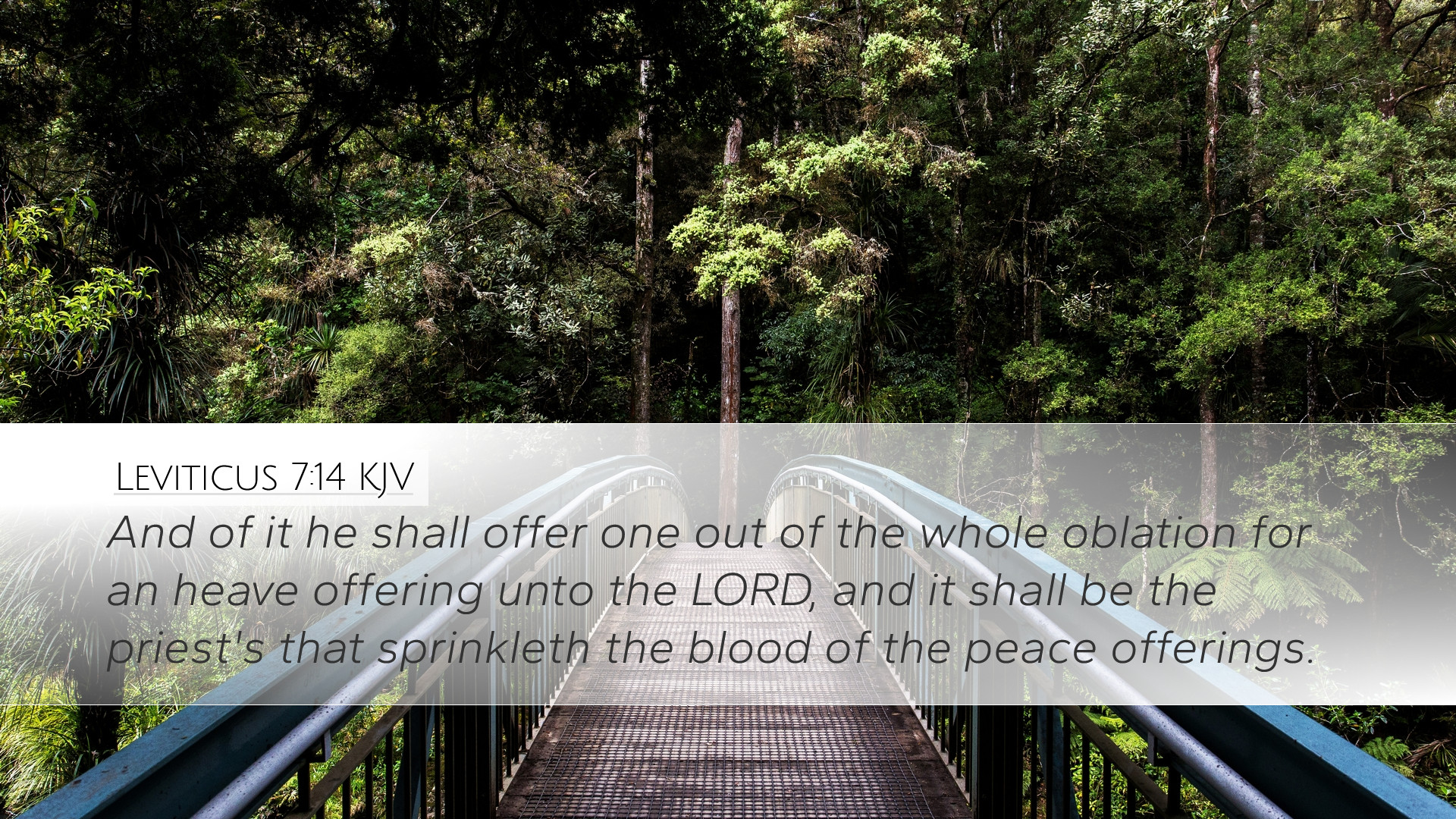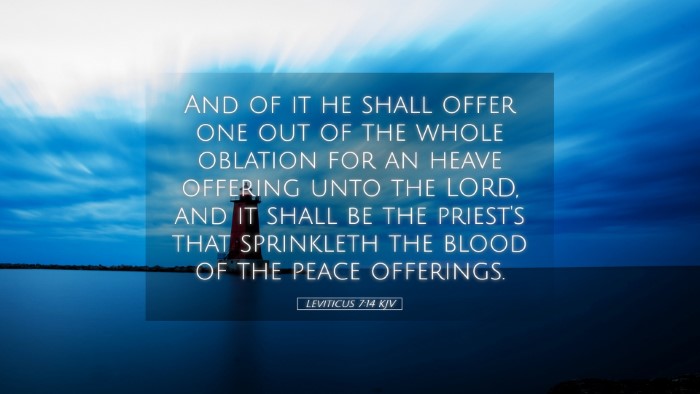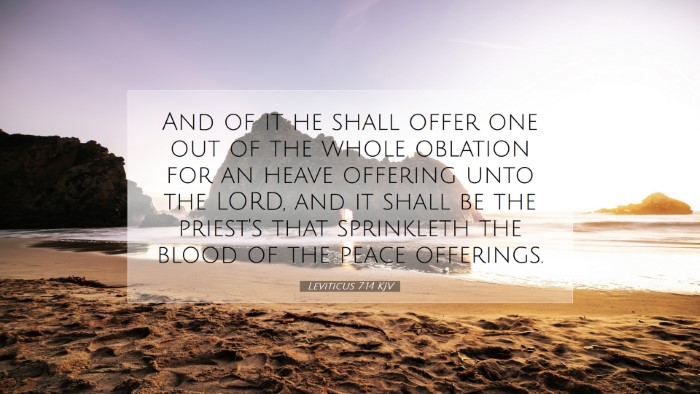Commentary on Leviticus 7:14
Verse Under Consideration: Leviticus 7:14 states, "And of it he shall offer one out of the whole oblation for an heave offering unto the Lord, and it shall be the priest's that sprinkleth the blood of the peace offerings."
Introduction
This verse comes from the instructions regarding the sacrifices that Israel was to offer. The peace offerings constituted a significant aspect of their sacrificial system, symbolizing fellowship and communion with God.
Contextual Overview
The Book of Leviticus contains laws concerning worship, sacrifices, and the ritual purity necessary for approaching God. In this chapter, the emphasis is on various offerings and the designated roles of the priests, highlighting the communal aspect of worship amongst the Israelites.
The Nature of Peace Offerings
Peace offerings, as outlined in previous verses, were voluntary sacrifices expressing gratitude and fellowship with God. The offering was not only a means of atonement but also a celebration of peace and restoration with the Lord.
Understanding the Heave Offering
Heave Offering Explained: The term "heave offering" refers to a portion of the sacrifice that was lifted up before the Lord, symbolizing dedication and recognition of God’s sovereign role in our lives. This action signifies both an act of worship and a communal sharing in the blessings of God.
The Role of the Priest
In this verse, the priest’s function as the one sprinkling the blood underscores the solemnity of the sacrifice. The act of sprinkling blood was central to atonement rituals, symbolizing life and the covenant established between God and His people.
Insights from Public Domain Commentaries
Matthew Henry’s Commentary
Matthew Henry emphasizes the communal aspect of peace offerings, noting that they were representative of a covenant relationship between God and humanity. He interprets the heave offering as an acknowledgement that all gifts come from God, and the act of offering back a portion signifies reliance on God's grace. Henry also remarks on the joy afforded to both the worshipper and the priest, highlighting mutual participation in God's blessings.
Albert Barnes’ Notes on the Bible
Barnes reflects on the details of the peace offerings, pointing out that they were meant to express joy and thanksgiving rather than merely atoning for sin. He delineates the importance of the heave offering - it illustrated the necessity for dedication to God. He also notes how the priest was to receive this offering, reinforcing the priestly role as a mediator of God’s grace and a facilitator of worship in the community.
Adam Clarke’s Commentary
Adam Clarke offers an insightful analysis into the ceremonial aspects described in this passage. He elucidates the significance of the priest receiving a portion of the offerings as part of their sustenance and support within the community. Clarke points to the larger theological implications of sharing God’s provisions and maintaining a holy intimacy with Him through acts of worship.
Theological Reflections
Leviticus 7:14 serves as a reminder of the call for believers to offer themselves and their resources in ways that honor God. The sacrificial system may seem distant to modern readers, but the core principles remain applicable today: our offerings, whether material or ourselves, should be given joyfully and with a heart of gratitude.
Application for Pastors and Theologians
- Encourage Generosity: Pastors can use the principles within this passage to encourage congregational generosity, showing how offerings are a form of worship that reflects one's relationship with God.
- Clarify Worship Roles: Understanding the roles of priests in the sacrificial system can foster a deeper appreciation of the roles of leaders and servants within today's church structure.
- Promote Community Engagement: The communal aspects of peace offerings remind church leaders to foster unity and fellowship among believers, engaging in collective worship and thanksgiving.
Conclusion
In summary, Leviticus 7:14 encapsulates important themes of worship, community, and the covenantal relationship between God and His people. It serves both as an ancient directive and a modern reminder of the significance of offering our best to God and celebrating the peace and fellowship found in Him.


